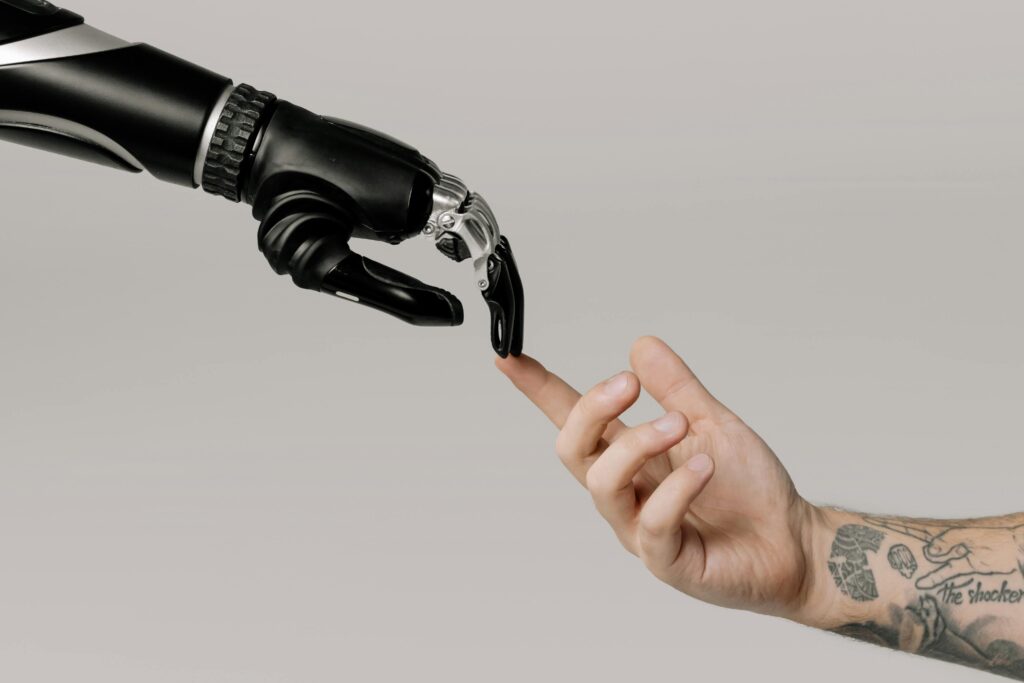Generated by DeepAI, using the prompt “AI wearing a crown.”
Overview
- Why ‘Content is NOT King.’
- Banner Blindness.
- AI is now King.
- Hyper-personalised Advertisements.
- Generative AI.
- What’s Next?
Why Content is not King
Bill Gates famously cited in his 1996 essay, ‘Content is King.’
For Marketers, this has instilled the idea that brands need to have an omnipresence to effectively target consumers. This has led to many believing that; the more content produced the better, even if it’s generic. As consumers are inundated with social media posts, advertisements, and emails to name a few. Therefore, the more of these a brand produce the higher chance they can stand out from the crowd.
This assumption, I believe is not just a mistake, but a colossal error, as emphasised by the following statistics.
GWI and WARC
What bothers me the most out of these four adjectives, is the latter. Why is it Marketer’s content has been deduced to being immemorable, when we are living in the most creative era humanity has ever seen?
Banner Blindness

Arguably, this issue with ‘immemorable content,’ is a systematic problem due to ‘banner blindness.’
As either subconsciously or intentionally consumers are deciding not to pay attention to advertisements because they have seen the same variations so many times.
Photo generated by DeepAI, using the prompt “person covering their eyes.”
For Marketers, this is particularly problematic in light of the consumer decision journey. As if consumers are not stimulated during the initial consideration stage, the reality is they are 3x less likely to be persuaded to purchase a product or service.
This begs the question, what should Marketers do in response? Should they settle with this reality, or use it as an opportunity to trial new ways to break through this rut of ‘immemorable content’ and banner blindness?
“aI is now kING”

Artificial Intelligence I believe is the ‘golden ticket’ for Marketers due to its immense capabilities. As rather than relying on flooding their media eco-systems, AI eliminates the guess work and therefore aids the production of quality, engaging content. For that reason, I believe AI has replaced ‘Content as King.’
Some brands already have been successfully utilising Traditional AI for many years. For example, Buzzfeed uses AI to measure and optimise previous content for insights, which informs every aspect of future content creation. Likewise, AI has been utilised by Harley-Davidson since 2017, which contributed to a 2930% increase in sales.
There is no denying that AI usage in this traditional sense is extremely benefit for Brands. But, I can’t help wonder with its evolution, what is the next big thing? And importantly, does it offer the solution to the pressing issues of immemorable content and banner blindness?
Two Artificial Intelligence systems, in particular, I believe offer the most potential for Marketers in this regard, which will be explained in turn.
1) Hyper-Personalised Advertisements
Hyper-Personalised Advertisements combines behaviour and real time data using AI to create tailored ad-content for each individual consumer. Within Marketing, personalisation has become extremely important and is no longer just an option for brands.
Twillo
Importantly, hyper-personalised advertisements has the potential to be particularly effective to solve the problems at the Initial Consideration Stage discussed above. As when faced with generic or personalised advertisements, I know I would pick the latter everytime.

2) GENERATIVE ai
With the developments of Generative AI, the possibilities for producing creative content is endless. As by its nature Generative AI analyses existing data patterns to generate unique types of content including video and images.
This creates a powerful tool to transform even the most average of marketing departments, into that of a world-class team.
Take for example, Open AI’s newest AI Model Sora, which uses textual prompts to create realistic and imaginative scenes. The quality of such, could easily match up with even the most admired creative directives. Below is an example from OpenAI’s website of what it can produce simply from five lines of prompt.
It is important to acknowledge that Generative AI has been criticised especially within the Creative Industry. However, the reality is it is here, and is being utilised. Therefore, for Marketers if they are not using Generative AI they risk lagging behind in this new creative age.
Whats next?
While Hyper-personalised Advertisements and Generative AI are by themselves revolutionary, when combined they have capabilities to disrupt the entire Marketing industry. Whether this is desirable is up for debate, however it solves the issue of immemorable content.
It has been theorised that the future is hyper-personalisation in its most extreme form. As by collecting data, Brands can use Generative AI to create advertisements that include preferred music, featuring clothes that match consumers styles, in the colours they prefer and the models they relate to.
While, this would almost certainly persuade consumers to stop and stare, I am not sure whether it would necessarily be for the right reasons.
As there is a very fine line between AI being king, and it becoming a tyrant. There are also concerns whether hyper-personalisation in this extreme form, is even ethical and legal.
Nonetheless, this begs the question is this the future of digital marketing and the opportunity to reverse the nature of ‘immemorable’ advertisements. Or does the evolution of AI simply represent the opening credits of an episode of black mirror?

Leave a Reply
You must be logged in to post a comment.